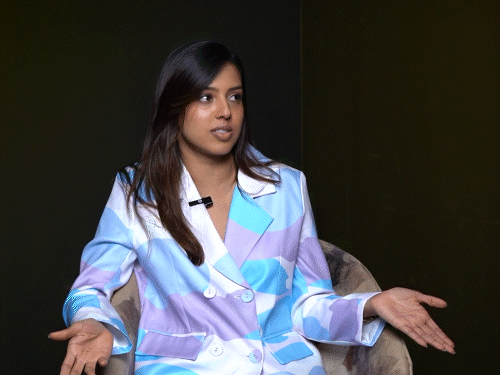- Hindi news
- Opinion
- Kaushik Basu’s column there is a Deep Connection Between Economic Inequality and Weak Democracy
6 days ago
- Copy link

Former Chief Economist of Kaushik Basu World Bank
Economic inequality in any country definitely plays a useful role to some extent, as it provides encouragement for innovation and hard work. Entrepreneurs often have to take risks to invest in new undertakings. If the undertaking is successful, they will get appropriate compensation for the risk.
Similarly, a person who chooses hard should get more income than those who adopt more comfortable lifestyle. These are those incentives that forward the economic growth of a country. Therefore, a certain level of economic inequality is natural and also necessary for the economy to grow.
However, today the level of economic inequality in the world is being seen, it is more than it should be. A study published by Oxfam on 20 May 2025 states that the property of 10 richest people in the world increased by $ 365 billion in a year. This is four times more than the total income earned in a year by the entire population of Tanzania (about 6.6 crore).
Suppose the annual income of the richest people is 5% of their total assets, so today the total income of the world’s three richest individuals- Musk, Zuckerberg and Bezos is equal to the income of the entire population of Nepal i.e. 2.96 crore people. If we talk about the countries of Sub-Saharan Africa, then so much income will be equal to a large population there.
We know there was a lot of inequality in India during the British Raj. Even after independence, it was much less than not only the British era, but also compared to many other countries of the world. When I was studying in Kolkata and Delhi, I often listened to the 22 families of Pakistan who used to run the whole country through their wealth.
We used to read about Cronbly Capitalism (collusion capitalism) in the Philippines and many Middle Eastern countries, where some few people used to take possession of the country and the government. At that time, India seemed different from this.
But recent studies show that Cronism is now growing rapidly in India. According to a study conducted by Thomas Pikati and his co-writer, economic inequality in India has reached a level that was seen in the British Raj.
Such inequality is not considered right in any part of the world, but here I want to pay attention to a new and serious problem: the relationship between economic inequality and the weakening of democracy.
The impact of inequality in today’s world is taking a different form, and one of the major reasons for this is the increase of digital connectivity, the emergence of social media and online platforms. In earlier times, people who were very rich had many houses, cars and jewelry. Even today, they have all this, but apart from this, now they also have the power to control the platforms and make an impact that was not possible earlier.
Anthropologists working on Indian rural life have written that when the common people were openly putting their words in the village meetings, as soon as a rich zamindar of the village used to come, everyone used to be silent.
Today, when the whole world is digitally engaged in the same big meeting in a way, the same thing is happening globally. When all the means of affecting the hands of some billionaires, the voice of the common people is suppressed. And this is causing the most damage to democracy.
Entrepreneurship and inspiration to earn profit are two major sources of human growth. We should allow the market to work, but at the same time it is also necessary that a proper part of that profit is used to be used for the good of the poor. (These are the author’s own views)









Leave a Reply